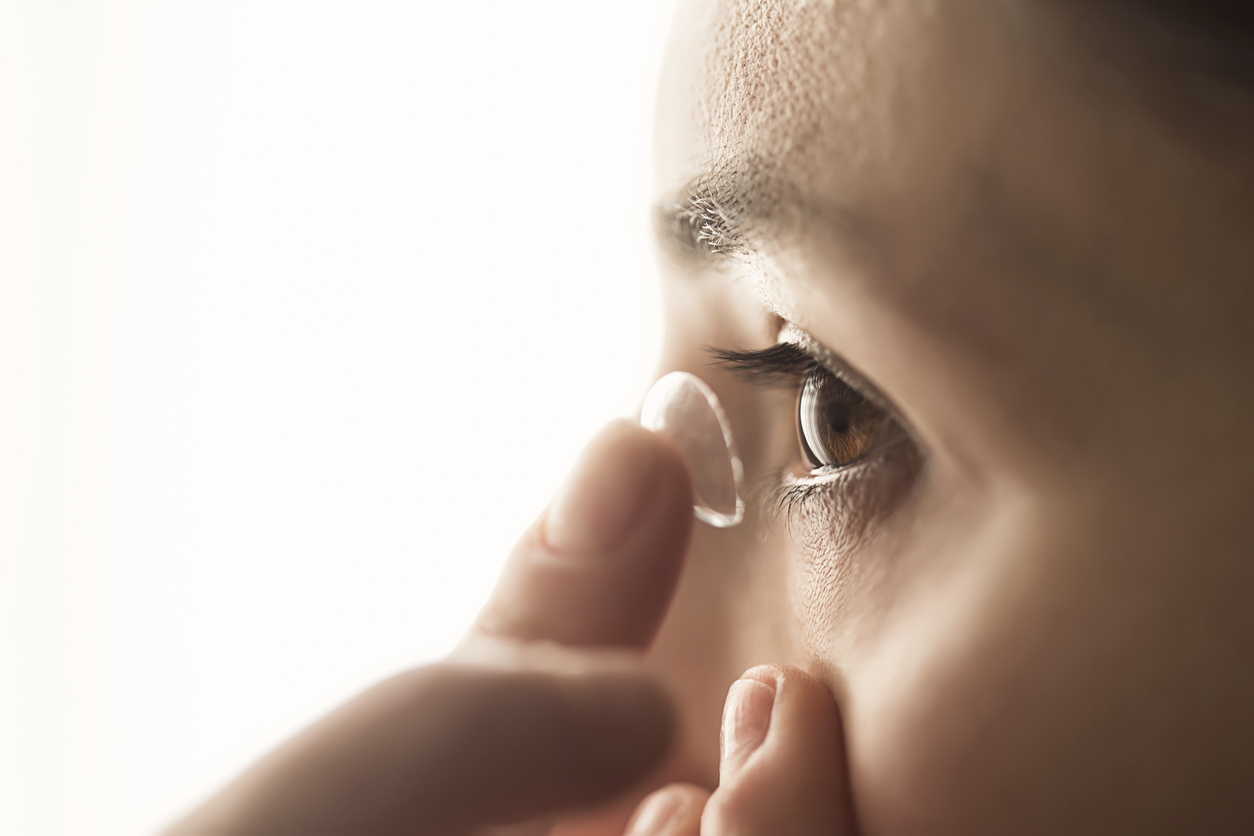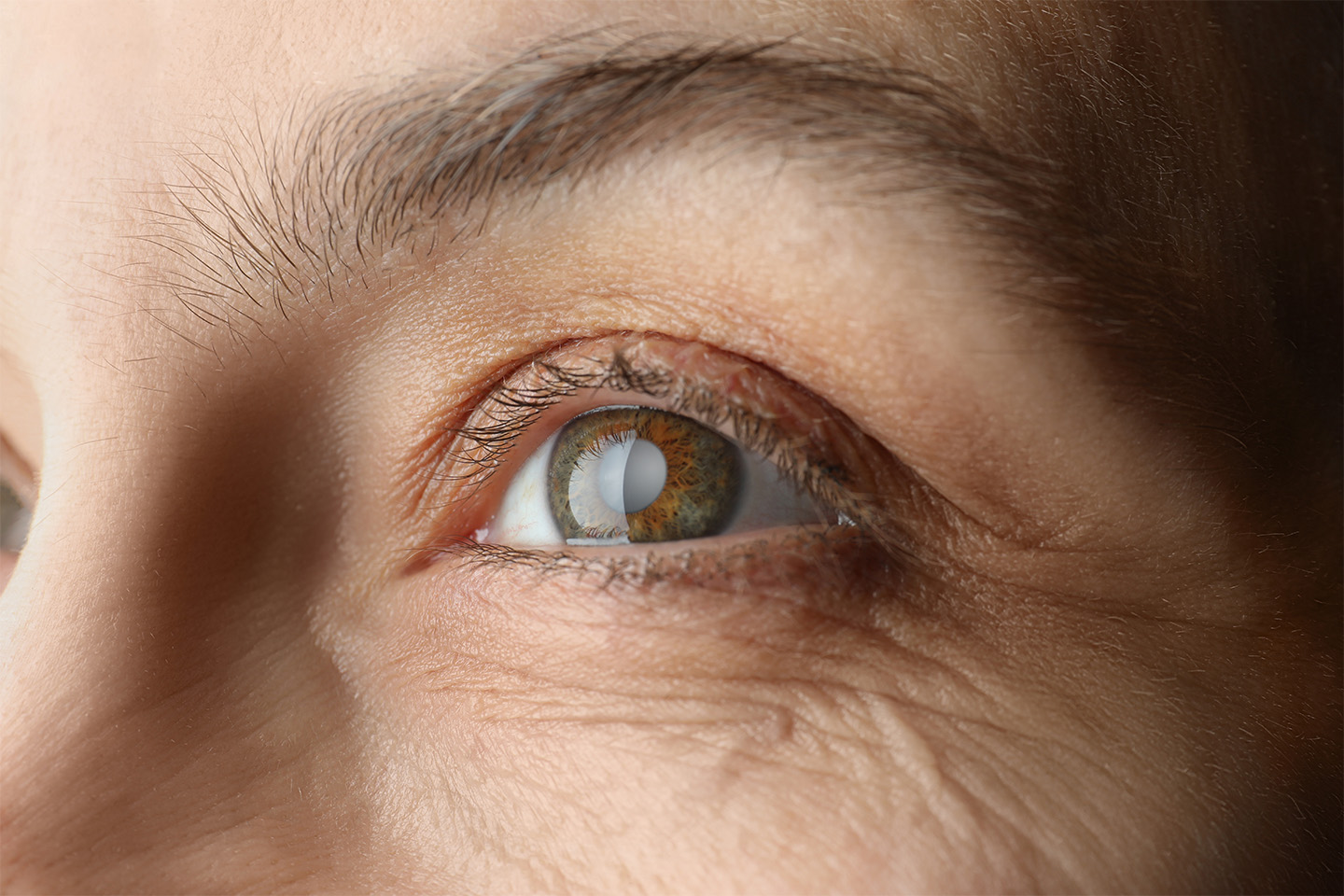If You Suffer from Allergies, LASIK Could Be Better than Contact Lenses

LASIK can improve your vision, but it can also help free you from giant papillary conjunctivitis, an allergic reaction to contact lenses.
In the spring and summer, seasonal allergies tend to rear their heads, leading to stuffy noses or watery eyes. But sometimes allergies aren’t seasonal — they’re due to something that otherwise might be helping you, like your contact lenses.
Some contact lens wearers may experience an allergic reaction called giant papillary conjunctivitis, or GPC. This condition can make it difficult to wear your contacts or even cause damage to your eye. Fortunately, if you suffer from GPC, there are ways to find relief from pain and discomfort.
What Is GPC?
GPC is a non-infectious, inflammatory eye allergy that predominantly affects the inner eyelid. It gets its name from the tiny bumps that manifest on the inside of the eyelid, which are known as papillae, and the part of the eye it irritates, the conjunctiva, which is the mucous membrane lining the front of the eye and the eyelids.
GPC actually comes in two forms: primary and secondary. Primary GPC is chronic and associated with seasonal allergies. Secondary GPC, on the other hand, is caused by foreign bodies such as contacts. Of the approximately 12 million people who wear soft contact lenses, around 1-5% of them experience secondary GPC.
Aside from contact lenses themselves, GPC can have other triggers including the type of contact lens solution you use, whether you use daily disposable contacts or not, how clean you keep your contacts and relevant supplies, and whether or not you also have an eye prosthesis, stitches, or injuries.
Symptoms To Watch Out For
If you have GPC, your symptoms will usually appear mild and then worsen over time. Redness, blurry vision, swelling, itchiness, bumps on the inner eyelid, and excessive eye mucus are all signs of GPC.
As the condition progresses, it may become painful to wear contacts or difficult to open your eyes in the morning due to the amount of mucus in your eye. If left untreated, GPC can cause damage to the cornea or other parts of the eye, especially if you rub your eyes.
Alternative Options
If you’ve already tried switching the type of contact lenses you wear or contact solution you use and are still experiencing symptoms, try taking a break from wearing contacts until your symptoms clear. There are also prescription eye drops that may help provide relief. If none of these solutions work, you’ll likely have to stop wearing soft contacts entirely and instead use hard contacts or glasses.
Of course, hard contact lenses and glasses can be uncomfortable or inconvenient, which is probably why you chose soft contact lenses in the first place. Laser eye surgery, or LASIK, can be a better option for sharpening your vision without the discomfort. LASIK uses specialized lasers to reshape the eye’s cornea (either making its curve steeper or flatter, depending on your condition), resulting in permanent vision correction. LASIK is a brief surgery with a quick recovery time and can improve nearsightedness, farsightedness, astigmatism, or a combination of these conditions.
Next Steps
If you’re experiencing irritation, pain, or other symptoms from your contact lenses, don’t just assume they’ll go away with time. Get examined to see if you have GPC, and find a solution that works best for you. The eye doctors at Kleiman Evangelista Eye Centers are experienced in diagnosing and treating conditions like GPC. Schedule a consultation with us today, either online or over the phone.
Turn To The Top Eye Doctors In Texas
Check out one of our locations below for the best eye care near you:
[DISPLAY_ULTIMATE_SOCIAL_ICONS]








